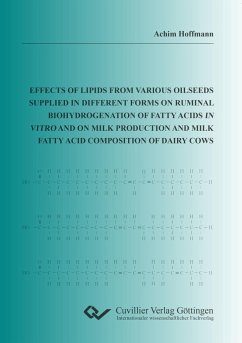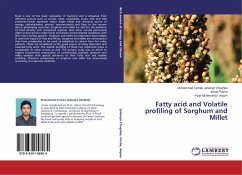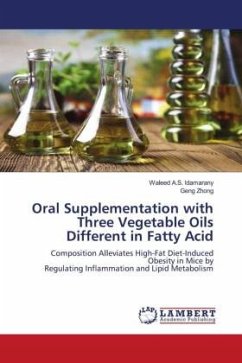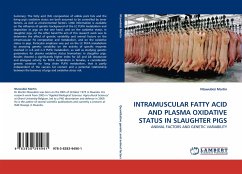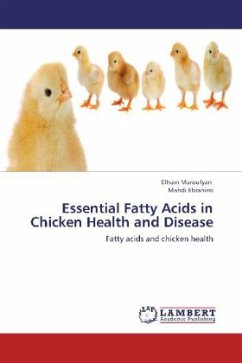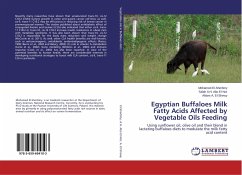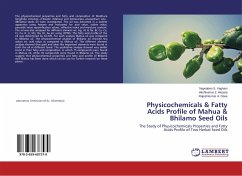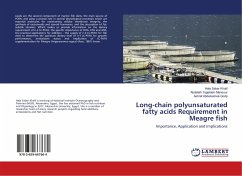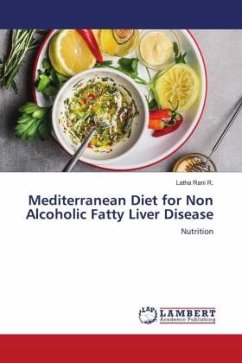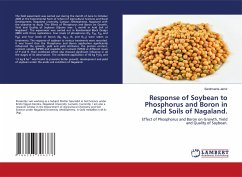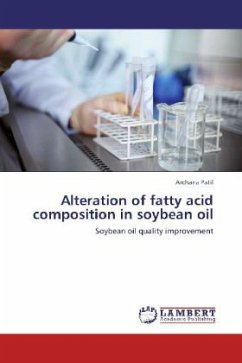
Alteration of fatty acid composition in soybean oil
Soybean oil quality improvement
Versandkostenfrei!
Versandfertig in 6-10 Tagen
52,99 €
inkl. MwSt.

PAYBACK Punkte
26 °P sammeln!
Soybean is one of the major sources of vegetable oil all over the world contributing 30 % of world s edible oil. The soybean oil contains almost 60 % of polyunsaturated fatty acids which imparts off-flavor and thus poor shelf life to the oil. The hydrogenation process routinely used to overcome this problem leads to the production of trans fats which in turn increases the chances of developing heart diseases. In contrast, oil with high mono-unsaturated fatty acids is more stable, avoiding need for hydrogenation of this oil. Nowadays there is increasing demand for the oils with high mono-unsatu...
Soybean is one of the major sources of vegetable oil all over the world contributing 30 % of world s edible oil. The soybean oil contains almost 60 % of polyunsaturated fatty acids which imparts off-flavor and thus poor shelf life to the oil. The hydrogenation process routinely used to overcome this problem leads to the production of trans fats which in turn increases the chances of developing heart diseases. In contrast, oil with high mono-unsaturated fatty acids is more stable, avoiding need for hydrogenation of this oil. Nowadays there is increasing demand for the oils with high mono-unsaturated fatty acid content among consumers and food industries. In the present study soybean mutants with high oleic acid content have developed using physical and chemical mutagens. Molecular characterisation, Agronomic performance of all HOMs and G x E interaction for mutants was studied. Also a non destructive, rapid method for fatty acid estimation was developed. These HOMs will be very important resources for the current soybean breeding programs aimed at improving soybean oil quality. To our knowledge this is the first ever report of modifying fatty acid composition of soybean in India.



